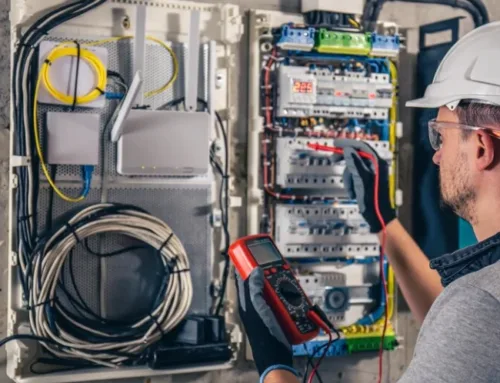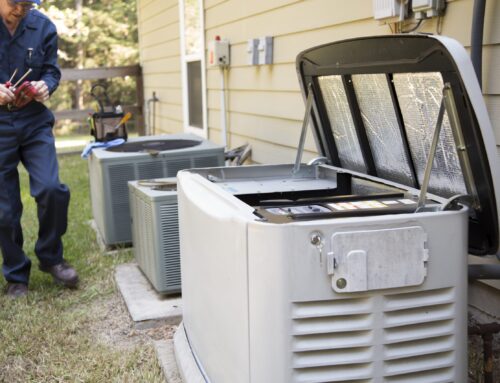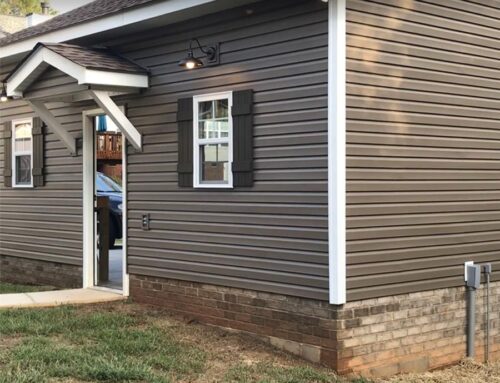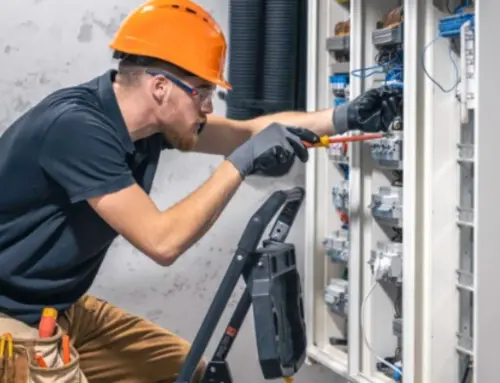Power outages usually occur due to a problem in the electric grid system, such as damaged power lines or transformers. They may also occur due to extreme weather events like storms, hurricanes and lightning strikes.
During a power outage, it can be difficult to keep appliances running or have access to essential amenities like refrigerators and lights. It is important to be prepared for a power outage by having an emergency plan in place that includes storing food at proper temperatures, having fresh batteries available, and stocking up on water and other necessities.
Additionally, it is wise to invest in an uninterruptible power source that can help provide basic electricity needs during an outage. Finally, knowing how to safely turn off gas and electrical appliances during a power outage can prevent fires from occurring due to electrical surges when power is restored.
By being prepared for a power outage, individuals can protect their safety and help minimize the disruption to their lives during such an event.
Also, it is important to be aware of how long a power outage may last in order to properly plan for necessary items and arrangements. Many outages can last anywhere from several minutes up to several hours or even days.
In some cases, it is possible to call local utilities companies who can provide updates on the estimated duration of an outage as well as any preventative measures that may need to be taken in order to stay safe during the outage period.
Understanding what resources are available ahead of time can help reduce stress if or when a power outage occurs and ensure essential needs are met during the duration of the outage.
Things To Have During A Power Outage
Being prepared during a power outage can be life-saving and help minimize the disruption it can cause. In order to ensure individuals are properly prepared for a power outage, it is important to have the following items stored:
Water: Staying Hydrated During an Outage
During an outage, it is important to stay hydrated. Depending on the length of the outage and the type of emergency, your access to clean drinking water may be limited. In order to keep yourself healthy and hydrated during an outage, here are some tips:
- Have plenty of bottled water stored in a cool, dark place. Replace it every six months for optimal freshness.
- If you’re running low on bottled water, try boiling or distilling water from other sources such as rivers and lakes. Boiling will kill most bacteria and viruses while distillation removes almost all impurities present in any water source.
- Try adding electrolyte tablets to your water supply if you become dehydrated or are losing too much salt.
- If you’re in a pinch, many fruits and vegetables contain water that can help keep you hydrated. Fruits such as oranges, grapes, watermelons, and apples are particularly beneficial for hydration.
- Try to limit your intake of caffeine or alcohol during an outage as both beverages act as diuretics which can lead to dehydration.
- Make sure to replace any lost fluids in the form of sweat with drinks such as sports drinks or coconut water. These drinks are packed with electrolytes which will help replenish what has been lost due to exercise or heat exposure.
When it comes to staying hydrated during an emergency outage, preparation is key. Stocking up on bottled water, knowing how to treat water from other sources and choosing the right beverages are all important steps in staying healthy and hydrated during an outage. Prepare today so you can stay safe tomorrow!
Flashlights and Batteries: Illuminating the Darkness
When the lights go out, having a reliable source of illumination can be a lifesaver. Here are some tips on how to prepare for power outages:
- Stock up on extra batteries for any flashlights or other devices you may need during an outage.
- Have several working flashlights with fresh batteries stored in a safe, easy-to-reach area.
- Invest in a quality power generator so that you can run lights and other essential devices during an outage.
- If your home is connected to a natural gas line, consider purchasing a gas lantern for use during outages.
- Have candles on hand but make sure to use them safely and away from any flammable materials.
- If you live in an area prone to outages, consider investing in a solar powered light system. This is a great way to ensure that you always have access to light during a power outage.
When it comes to powering your home through an emergency outage, preparation is essential. Take the time to make sure you have access to reliable sources of light and that your flashlights, batteries and other devices are in working condition. With a little bit of planning, you can rest assured that your home will remain illuminated even during an emergency outage.
Non-Perishable Food: Keeping Your Hunger at Bay
Keeping a supply of non-perishable food items is an important part of preparing for an emergency outage. Here are some tips on stocking up:
- Stock up on canned goods such as beans, fruits, vegetables, soups and any other foods that can easily be shelf-stable in your pantry.
- Have a few days’ worth of ready-to-eat items in case you don’t have access to a stove or an oven.
- Try storing grains such as rice, quinoa and oats which can last for months without going bad.
- Invest in freeze-dried or dehydrated food items that have a long shelf life but can still provide the nutrition you need.
- Make sure to keep a supply of high-energy snacks such as granola bars and trail mix on hand for an easy boost of energy during an outage.
When it comes to staying fed during a power outage, preparation is key. Stock up on shelf-stable items and place them in a safe, easy-to-reach area so that you can rest assured that you will have access to food even during an emergency outage.
Portable Power Banks: Keeping Your Devices Alive
Staying connected during an emergency blackout is important for staying in touch with family, friends and your work. Here are some tips on how to keep your devices running:
- Have multiple power banks stored in a safe place that can be used to charge phones, tablets and other small devices.
- Invest in a quality solar charger so that you can charge your devices even if there’s no electricity.
- Make sure to have extra batteries and a compatible charger on hand for any larger electronic items such as laptops.
- If possible, make sure to keep all electronics fully charged before a blackout occurs.
- Have an alternative way of staying connected such as a satellite phone or two-way radio.
Staying connected during an emergency blackout is essential for staying in touch with the outside world. Be sure to have multiple ways of charging your devices so that you can stay powered up even when the power goes out.
First Aid Kit: Handling Emergencies with Ease
Having a first aid kit on hand is essential for handling any medical emergencies during a power outage. Here are some tips on stocking up:
- Make sure to have an ample supply of bandages, gauze and other wound care items like ointment and disinfectant.
- Have a few days’ worth of over the counter medications such as pain relievers and antihistamines.
- Have a list of important phone numbers in case you need to contact medical professionals during an emergency.
- Collect any necessary prescription medications, making sure that they are stored properly and out of the reach of children.
- Make sure to have a pair of scissors, tweezers and a flashlight for any small medical tasks that might need to be performed.
When it comes to handling medical emergencies during a power outage, preparation is the key. Make sure you have all of the necessary items and phone numbers on hand so that you can handle any situation with ease.
At Starnes Electric LLC, we hope everyone is prepared and ready for a potential power outage. Stay safe with your family! If you have any further questions about how to prepare for an emergency blackout, don’t hesitate to give us a call today!





